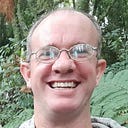The Waxing and Waning of the Two Truths
The above quote is in “Gautama Buddha: the Life and Teachings of the Awakened One”, which I am reading at the moment. It is about the life of Gautama Buddha. The quote is from towards the end of his life, when he is getting old; his long time friend Ananda comments how his skin is deteriorating and becoming wrinkled, and his senses are less sharp. It’s surprising to see him talk with bitterness about aging and death; his supreme enlightenment is supposed to have ended suffering that comes from the attachment to youth and aversion towards death.
The book also talks about how many members of Gautama Buddha’s Sangha (practice community) are becoming more interested in worldly trappings, fame, power, and authority that is starting to accrue from the success of the Buddha and his disciples’ teachings on the Dharma than renouncing those things and devoting themselves to practice; Gautama laments this ironic yet predictable development.
A concept I find extremely useful in Buddhism is that of the two truths which are defined as follows in the linked wikipedia entry:
The two truths doctrine states that there is:
Provisional or conventional truth (Sanskrit saṁvṛti-satya, Pāli sammuti sacca, Tibetan kun-rdzob bden-pa), which describes our daily experience of a concrete world, and
Ultimate truth (Sanskrit, paramārtha-satya, Pāli paramattha sacca, Tibetan: don-dam bden-pa), which describes the ultimate reality as sunyata, empty of concrete and inherent characteristics.
My understanding of this is, for example, that ultimately Buddhism teaches us that everything is one, that there is no independent, unchanging self, only a being that is in constant change and interdependent flux, with no real boundary between it and everything else. But at a provisional, or conventional level, I still need a passport to go to another country, I need money to buy a bottle of milk, sometimes I feel scared of doing something I haven’t tried before, and so on.
What I’ve noticed is, when I am deep in meditative practice, this ultimate truth becomes more accessible, for instance an experience that everything, all the physical objects, the feelings, thoughts, and sensations, are actually made of an infinite boundless love-like radiant substance. This is a powerful experience of insight, and then I want it to last forever. But what actually happens is, this experience waxes, and then it wanes, and the relative truth waxes. I can feel a closing in myself as my delusions and attachments grab some ground back. What I am learning is that this is part of the process, not to fight it or mourn for that experience of ultimate truth being more accessible, because nothing is ever really forgotten or erased, and that experience is still there in the background as I move into more of a “relative truth” phase.
I am getting accupuncture at the moment and my accupuncturist told me how there are 365 accupuncture points on the body, and 12 meridians (energy channels) in the body. Could we have a more resonant existence if we noticed more of the ways in which our bodies are timed and tuned to the rhythms of the natural universe?
